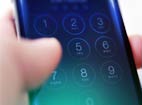Apple isn’t having a good week. First an expose’ was released showcasing, in nine detailed chapters, how Apple manipulates the media and has been doing it for years. Then a known security hole was apparently exploited and suddenly we are up to our armpits in nude pictures of celebrities, some of which are apparently fake, and almost all fingers are pointing at Apple (even though a good chunk of that problem was the celebrities taking nude pictures on cell phones in the first place).
I think this series of events should work to BlackBerry’s advantage because BlackBerry’s one sustaining advantage is that it is the most secure mobile platform in the market. Let’s talk about why the breach occurred, why Apple has a unique exposure here, and how BlackBerry could benefit.
Brute-Force Password Attack
Right now, the smart money is on the belief that this was a brute-force password attack on Apple’s iCloud and other cloud services (I say other because it looks like some of the pictures may have come from Android phones). A brute-force attack tries password after password against a single or small group of targets until one works. Apple’s iCloud recently was highlighted as having an exposure to this kind of attack and it is likely no coincidence that shortly after, folks had their accounts compromised.
Now, iCloud has a two-factor authentication service but it is defaulted off. As you would expect, users are allowed to use trivial passwords into iCloud, which is great for ease of use, but sucks when it comes to security. The value of unpublished celebrity pictures and gossip is relatively high, so you put crippled security together with high-value targets and you’ll get a successful breach, which is what happened here.
Apple’s Unique Exposure
Apple uses celebrities as advocates for its products, but does it on the cheap. It doesn’t pay the celebrities fees for this service; it gives them free products. The advantage with this approach is that it saves a ton of money and it clearly can work. The disadvantage is that the celebrities don’t know they are effectively on the payroll. If they don’t get a good experience, they are likely to go to social media, or any media, and share their displeasure. They can then quickly go from asset to liability much faster than the PR staff of any agency or company could hope to control.
Apple’s method of subtle manipulation just doesn’t work in a crisis. We are seeing it fail again here as it did with antenna gate and various battery problems, among other things.
BlackBerry’s Advantage
The advantage here is that celebrities aren’t necessarily heavy technology users. They basically want to look cool with their phone, have their communications stuff work, and be able to take and share moments with their fans. They aren’t known for heavy app use nor are they likely to stress a phone’s features. This makes them ideal for a BlackBerry capture because BlackBerry, better than anyone else right now, can specifically play to that need to both communicate with fans and to keep private stuff private. The smart publicists and PR handlers will be able to provide the celebrities with capabilities on the BlackBerry (like separating public and private lives), and the celebrities’ assistants can better manage the phone so that the celebrities don’t get embarrassed like they did this weekend.
In short, the BlackBerry is the ideal tool, if the solution is presented to them, to assure the celebrities’ needs are met and they remain secure. The problem is that it just isn’t cool anymore. However, if a bunch of celebrities move to the phone, it could become the “in thing” to use again and by definition, “cool.”
Wrapping Up: Apple vs. BlackBerry
The key thing for BlackBerry will be to not only showcase that its phones are more secure but that its management services could wrap an iPhone or Android phone and make them far less likely to be the cause of embarrassment in the future. A two-step process where the services lead the devices might be more assured; BlackBerry just needs to position its solutions against the problem and become the White Knight that this highly visible segment needs at the moment.
In any case, this showcases why it is very unwise to move secure conversations from BlackBerry platforms to any other mobile platform.
Rob Enderle is President and Principal Analyst of the Enderle Group, a forward-looking emerging technology advisory firm. With over 30 years’ experience in emerging technologies, he has provided regional and global companies with guidance in how to better target customer needs; create new business opportunities; anticipate technology changes; select vendors and products; and present their products in the best possible light. Rob covers the technology industry broadly. Before founding the Enderle Group, Rob was the Senior Research Fellow for Forrester Research and the Giga Information Group, and held senior positions at IBM and ROLM. Follow Rob on Twitter @enderle, on Facebook and on Google+



